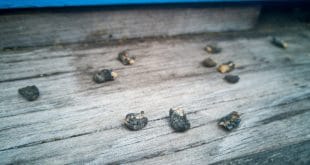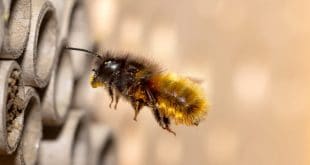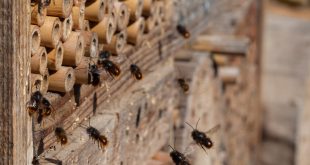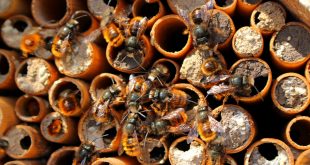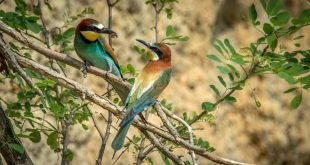🐝 Beekeepers, it's time to talk about Chalkbrood disease – a formidable foe for honey and mason bees. Our comprehensive article breaks down everything you need to know about this fungal threat. From spotting the tell-tale mummified larvae to implementing effective management practices, we've got you covered. Learn how to maintain a healthy hive, use disease-resistant bees, and explore chemical treatments that can help. Don't let Chalkbrood undermine your beekeeping efforts. Arm yourself with knowledge and keep your colonies safe. Read our full guide now! 🌸🐝 #Beekeeping #Chalkbrood #BeeHealth #SustainableBeekeeping #BeehiveManagement
Read More »An Overview of Mason Bee Pests, Parasites and Predators
Discover the challenges faced by mason bees, the unsung heroes of pollination. From ants to bears, parasitic wasps to fungal diseases, these solitary bees encounter a myriad of threats throughout the year. Learn how non-toxic control methods, vigilant nest management, and proper bee house maintenance can help protect these vital pollinators. Join the conversation on safeguarding our mason bees. #MasonBees #Pollinators #Beekeeping #EcoFriendly
Read More »How to Raise Mason Bees Successfully
Raising mason bees for plant pollination is better than using honeybees. Mason bees are solitary bees and native to the American continent. This article arms you with useful information on how to raise mason bees. Among other aspects, it explores the mason bee house, providing for mason bees and management practices for best results in mason beekeeping. The article also delves into the lifecycle of mason bees so that you get deep understanding of mason beekeeping processes and management practices. Use the tips on how to raise mason bees for successful mason beekeeping operations with great pollination of your plants.
Read More »Best Mason Bee Kits with Bees
Starting a mason bee population with cocoons is easy. You buy the cocoons from sellers such as Crown Bees and install them in the mason bee house. In a small period of time, you will have a large number of mason bees in the nest. You can buy the mason bee house separately from other items you need such as nesting tubes and attractants. Mason beekeepers also have the option of getting everything in one package. It is best to go for the complete set which includes the mason bee house, nesting tubes, and attractant since it makes purchasing the requirements easy. You do it once, instead of making multiple purchases, sometimes from different suppliers. In this article, we will discuss the best mason bee kits that come packaged with bees.
Read More »How to Protect Honey Bees and Mason Bees from Birds
Beekeeping is not only one of the most fulfilling hobbies, but it also a most rewarding venture for agriculturists. There are, however, some limiting factors, including honey bee predators, being one of the biggest challenges to beekeepers. Some of these include: beetles, rodents, wasps, ants, mammals, and birds. Poor hive management that leads to improper mitigation of these pests and predators certainly weakens the bee colony. While honey bees may instinctively keep off most of their enemies using their stinger, they sometimes require some assistance from the beekeeper. The tiny bee is a target of small to large predators making it an insurmountable task for a single colony to defend itself from all these predators and pests. Some predators eat the honey bees as a whole whereas others are parasitic, sucking the life out of the bees. In this article, we will discuss how to protect honey and mason bees from birds.
Read More » BeeKeepClub Resources and Guides for Beekeepers
BeeKeepClub Resources and Guides for Beekeepers
